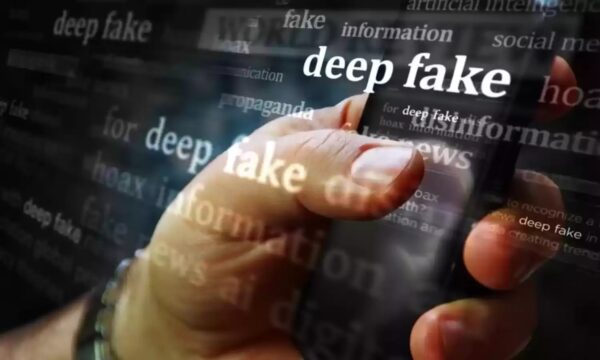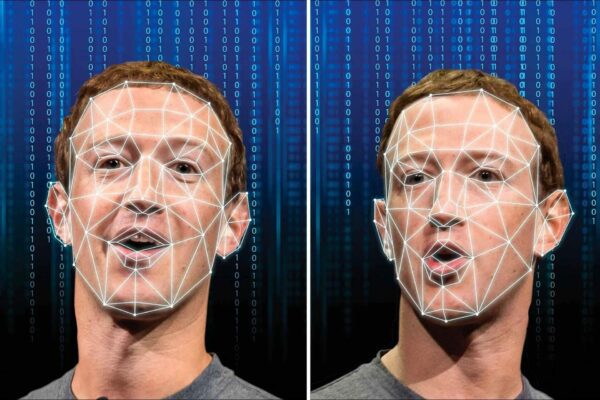Is it illegal to make deepfakes for personal use? In short, the answer is not a straightforward yes or no. While there are currently no laws specifically addressing the creation of deepfakes for personal use, it can still be considered illegal if it violates copyright or privacy laws.
Additionally, using deepfakes to deceive or harm someone could potentially result in legal consequences. Ultimately, the legality of making deepfakes for personal use depends on the context and intent behind their creation.
Table of Contents
- Can you get in trouble searching Deepfake?
- Are Deepfakes Illegal in Certain States?
- Can You Sue Someone for Making a Deepfake?
- Is It Illegal to Download Deepfakes?
- Is It Illegal to Make a Deepfake?
- What is The Punishment for Posting a Deepfake?
- How Can You Spot a Deepfake?
- What is a Deepfake Image?
- How Does the Technology Work?
- Frequently Asked Questions
Can you get in trouble searching Deepfake?

Yes, you can potentially get in trouble when searching Deepfakes. While simply searching for the term itself may not be illegal, accessing or sharing explicit or harmful Deepfakes could lead to legal consequences. Additionally, repeatedly searching for or viewing Deepfakes could raise red flags and possibly result in surveillance by law enforcement agencies.
Are Deepfakes Illegal in Certain States?
Yes, deepfakes are currently illegal in certain states, such as California and Virginia. These states have laws specifically targeting the creation and distribution of non-consensual pornography through deepfake technology. However, there is no federal law addressing deepfakes yet, so the legality of deepfakes may vary depending on the state.
Can You Sue Someone for Making a Deepfake?
Yes, you can potentially sue someone for making a deepfake if it violates your privacy or harms your reputation. In some states, such as California and New York, specific laws allow individuals to sue for damages caused by malicious deepfake content.
Is It Illegal to Download Deepfakes?
Yes, it is illegal to download deepfakes if they contain copyrighted material or if they violate someone’s privacy rights. Downloading and sharing copyrighted material without permission is considered piracy and can result in legal consequences. Additionally, downloading and sharing non-consensual deepfake pornographic content is also illegal.
Is It Illegal to Make a Deepfake?

It depends on the context of the deepfake. If the deepfake violates someone’s privacy or uses copyrighted material without permission, it could be considered illegal. However, if the deepfake falls under fair use guidelines or does not cause harm to anyone, then it may not be considered illegal.
What is The Punishment for Posting a Deepfake?
The punishment for posting a deepfake varies depending on the circumstances and location where it was posted. In some cases, posting a malicious deepfake could result in criminal charges, fines, and even imprisonment. However, the punishment may be less severe if the deepfake is considered non-harmful or falls under fair use.
How Can You Spot a Deepfake?
With the advancement of technology, it can be challenging to spot a deepfake. However, some warning signs include unnatural facial expressions or movements, inconsistent lighting or shadows, and glitches in the video or audio. Additionally, looking for discrepancies between the person’s appearance in the video and their known features can help identify a deepfake.
What is a Deepfake Image?

A deepfake image is manipulated using artificial intelligence (AI) technology. These images can range from face swaps to completely fake images of people that never existed. They are often used to spread false information or create misleading content on social media platforms.
How Does the Technology Work?
Deepfakes use AI algorithms called neural networks to analyze and learn from large datasets of images and videos. The algorithm then applies this learned information to manipulate existing images or create new ones based on specific parameters and inputs. The process involves training the algorithm on thousands of images until it can accurately replicate human-like characteristics in its creations.
Frequently Asked Questions
Do you need permission to deepfake someone?
The answer to this question is not a simple yes or no. In most cases, it is recommended that permission be given to the person being deepfaked before creating and sharing the video. This is because deepfakes can potentially harm the reputation and privacy of the portrayed individual. However, legally speaking, it depends on the laws and regulations of each country.
In some countries, it may violate someone’s right to control their image without consent. In other words, if you create and share a deepfake without their permission, you could face legal consequences for violating their rights. Therefore, it is always best to have explicit consent from the person before creating a deepfake of them.
However, there are situations where obtaining permission may not be possible or necessary. For example, in cases where the deepfake is used for satirical purposes or as part of an artistic creation, it may be considered fair use and not require explicit permission.
While obtaining permission for all cases may not be legally required, it is essential to consider the ethical implications and potential consequences of creating and sharing a deepfake without someone’s consent.
Can you create a deepfake of yourself?
Yes, creating a deepfake of yourself is possible using various online software and tools. Many people have created entertaining or comedic deepfakes of themselves using apps such as FaceApp or Reface.
However, more advanced programs also allow users to create highly realistic and convincing deepfakes that can be used for malicious purposes such as fraud or identity theft.
Individuals must understand that creating a deepfake of themselves can come with potential risks. For instance, if your personal information (such as photos) falls into the wrong hands, they could use it to create fake videos impersonating you. This could lead to damaging consequences for your reputation and privacy.
Therefore, it is essential to be cautious about sharing personal information online and to carefully consider the potential risks before creating a deepfake of yourself.
Are deepfakes identity theft?
Deepfakes can potentially be a form of identity theft, as they involve using someone else’s likeness without their consent. They can also be used to manipulate and deceive others, which can have serious consequences.
For example, deepfakes can impersonate individuals to obtain sensitive information or commit fraud. They can also be used in social engineering attacks, where scammers use fake videos or audio recordings to trick people into giving away personal information or money.
In essence, deepfakes blur the line between what is real and what is fabricated, making it easier for malicious actors to deceive and manipulate others. As such, they should be taken seriously as a potential form of identity theft, and steps should be taken to prevent their harmful use.
Conclusion
In conclusion, creating deepfakes for personal use raises ethical and legal concerns. While it may seem harmless at first glance, the potential consequences of using deepfakes without consent or for malicious purposes cannot be ignored. As technology advances, we must educate ourselves on the implications of this emerging trend and recognize the need for responsible creation and consumption of deepfakes. Let us strive towards a world where creativity and privacy are respected online and offline.
